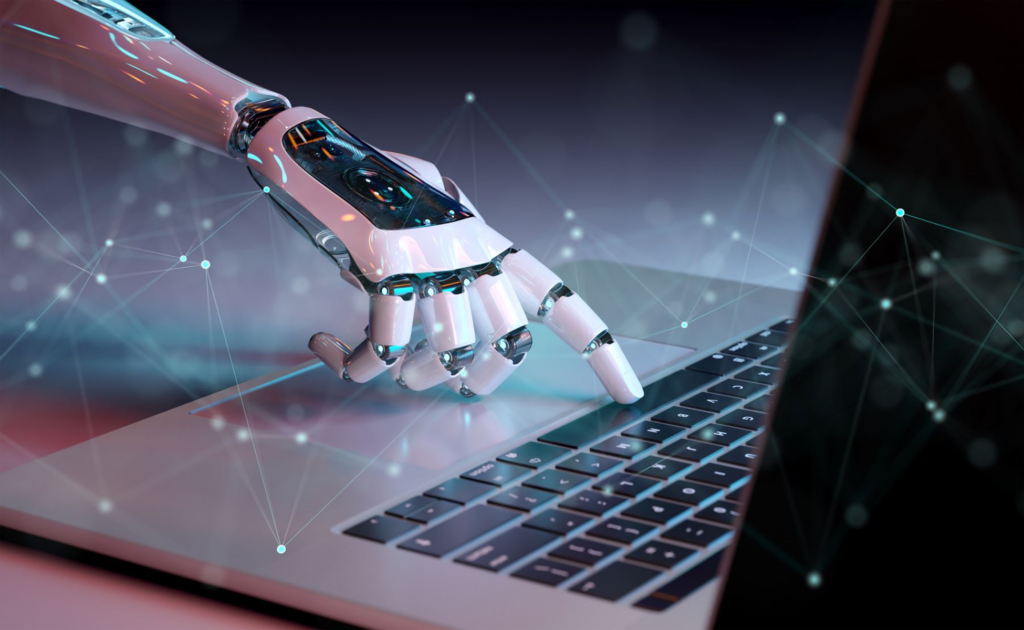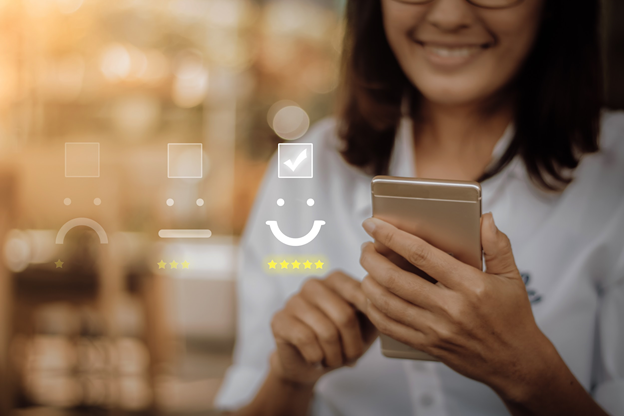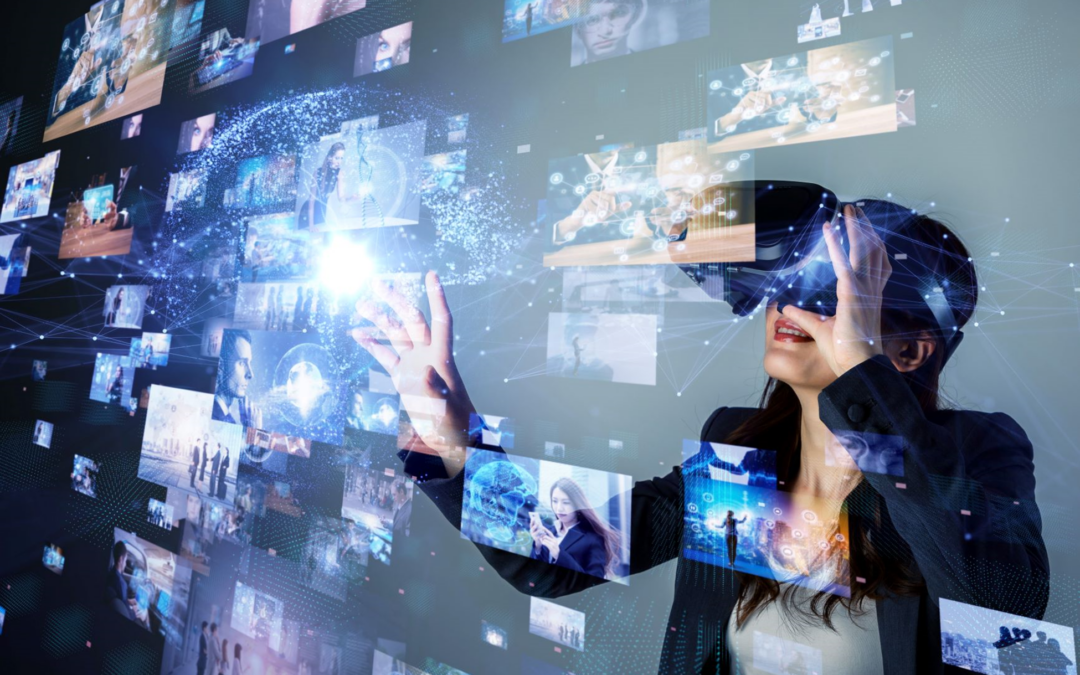It’s difficult to ignore AI marketing trends and the impact that artificial intelligence has on the business landscape.
Keeping emerging AI trends in mind, marketers must learn how to navigate a world where big data and Automation are essential.
After all, keeping up with innovation is now the key to marketing success. Businesses will need to understand and apply new apps, tools, and approaches to thrive.
As we recover from the pandemic, businesses are putting more effort into company blogs, social media, and video. The heat is on!
By merging these channels using machine learning and Automation, businesses can identify which emerging AI marketing trends could support their needs.
We have picked five of the most critical developments in AI technology worth following:
Automating Redundant Tasks

It goes without question that AI could improve the productivity of marketing teams.
Repetitive tasks that include scheduling content and cleansing marketing lists are time-intensive.
While essential, these tasks could keep marketers from focusing on high-value initiatives.
The goal right now is for businesses to unlock growth opportunities and improve productivity. Sure enough, Automation plays a vital role in this.
Automating repetitive and straightforward tasks allows marketers to spend more time and effort on more essential objectives.
According to the Harvard Business Review’s research report Artificial Intelligence and the Future of Sales and Marketing, businesses could focus on higher-value activities by using Automation for manual tasks.
We have identified these tasks as:
- social media management
- lead generation and lead nurturing
- A/B testing
- analytics reporting
- competitor analysis
Several organizations are already using Automation for these activities. They only need to pick and set up the right tools that support their marketing initiatives.
Marketers should also look into using AI to create content that targets the needs of customers.
For one, marketers can use AI to gather and use audience data for a process known as a dynamic creative assembly.
According to Deloitte, this process involves matching messages with specific audience segments. For example, location, age, and other essential information can lead towards more personalized content.
Along with big data, AI can undoubtedly provide businesses a powerful means to engage and convert potential customers.
It takes time but knowing how to fit AI applications with your marketing goals is already a big step to take.
Delivery of Personalized Content

Marketing is a numbers game. Success is guaranteed when you know what to do with complex data.
In your case, you might need to address questions like “What can I do with my website’s monthly conversions?” or “How can I develop a stronger social media presence?”
The actual issue is knowing the kinds of decisions you will be making based on these metrics.
Addressing this issue requires the convergence of two significant developments: personalized marketing and predictive analytics.
The performance of your marketing campaigns relies on your ability to translate data into actionable insights.
Marketing comes with limitations. For one, you could end up targeting too broad an audience.
Using AI for personalizing your messages provides an effective workaround. The right tools will let you analyze customer behaviors and target specific customer personas.
As a result, you might be more equipped to recommend products and services based on people’s interactions with specific content.
Moreover, using AI-driven predictive analytics leaves little room for biases and inaccurate guesswork. You get to obtain a more precise and objective picture of your audience.
In turn, this allows you to deliver the personalized messages at the right time throughout the customer journey.
Still, using AI to drive marketing decisions has its limits. While it seems far from perfect, this approach has enormous potential in helping businesses make the most of their marketing budgets.
Doubling Down on Chatbots

Chatbots are nothing new to today’s marketers. The coronavirus pandemic saw more and more people using chatbots to inquire about products and services.
While chat support has been around for some time, the use of AI personas in place of human agents has spread quickly.
Sure enough, AI has redefined how businesses handle customer concerns and questions.
Before, human CSRs could hardly keep up with the need to deliver personalized solutions.
AI-powered chatbots, on the other hand, allow businesses to automate troubleshooting processes for customers.
By using the right tools, businesses can respond in real-time to recurring issues. In addition, this allows human CSRs to focus more on resolving major customer problems.
Apart from that, chatbots can also recommend products on the behaviors of users onsite. Thus, it is only a matter of setting up chatbots capable of natural language processing (NLP).
Chatbots lead us to another essential AI-driven development.
The Rise of Voice and Visual Search
Online users prefer entering text on a search bar. However, this is going to change with the introduction of voice and visual search.
While they seem nothing new, businesses should seriously look into the potential value they bring
Voice search, for one, is becoming ubiquitous with the rise of “virtual assistants.” These include Windows’ Cortana, Amazon’s Alexa, and Apple’s Siri.
Such platforms help users schedule appointments and search for products remotely.
Voice search makes so much sense when people are cautious about spreading Covid-19.
More importantly, voice search is one of the most critical emerging AI marketing trends that will change how businesses approach search marketing.
Marketers should consider implementing voice search engine optimization or VSEO and further optimize search engine snippets and local SEO improvements.
As AI engineers dig deeper into natural language processing, your brand needs to prepare for an even deeper appreciation of voice search.
The same goes for visual search.
The technology uses advanced image understanding to match your products with photos of similar products.
And just like voice search, the increasing popularity of visual search will push you towards using tools such as Visenze and Google Lenz.
These solutions are capable of achieving higher levels of customer engagement, especially among Millennials.
It is only a matter of making sense of visual and voice search. You may want to focus on knowing how these could bring value to what you are doing at present.
VR and AR in the Spotlight
Ever since the start of the pandemic, consumers can only interact with the content that businesses publish.
However, videos and blogs just won’t cut it anymore. Customers want to undergo more immersive experiences.
Using virtual reality (VR) and augmented reality (AR), businesses can offer audiences a better means to compare services.
As these technologies become increasingly prevalent, we could expect these to integrate with AI.
The travel industry, for one, can benefit from this convergence. For example, through VR, tour operators can help travelers make essential decisions before booking.
Moreover, AI can also help match people’s VR immersions with suitable tour packages.
The interplay between AR, VR, and machine learning are all marketing trends that could integrate into business plans sooner than later.
Even then, it would be an exciting development that companies won’t hesitate to try out.
Right now, the market for AR/VR is steadily rising. You wouldn’t want to get left behind as everyone jumps on the wagon.
The impact of these emerging AI marketing trends will surely prevail well into the future.
As a business owner, how do you make the most of Automation and machine learning? How do you use it when it comes to generating leads and converting users?
At any rate, it is only a matter of being wide open to new developments as they come.
Find out more about the other tech disruptions that are changing the way you reach out to customers.
Get in touch for a free marketing consult!
Join our newsletter
Smarter Marketing Starts Here
Subscribe to receive the latest AI marketing and CTV ad tips that help you stay ahead - delivered straight to your inbox. Join our newsletter!

